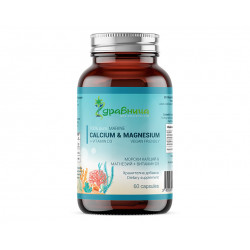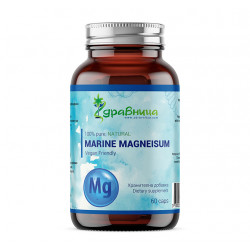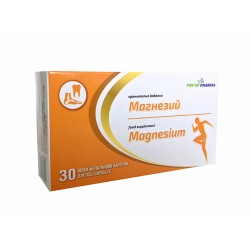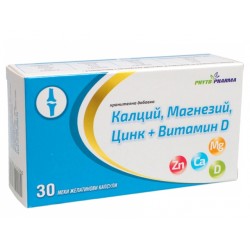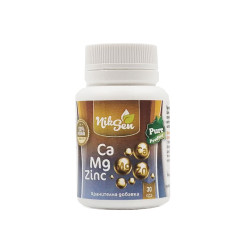The human body contains about 25 grams of magnesium, mainly in bones in the form of phosphates and bicarbonates.
The physiological functions of magnesium are diverse: it is a structural component of a wide range of enzymes (approximately 300). It belongs to the catalysts that increase the activity of enzymes and enhance their action with the direct participation of magnesium ions in the process of biosynthesis. They are needed to activate amino acids and maintain the integrity of ribosomes.
Magnesium affects the neuromuscular excitability and function of the heart in abnormal heart rhythm, ischemic heart disease, incl. and in myocardial infarction by improving myocardial oxygen supply and thus limiting the area of damage.
At the same time, magnesium has a vasodilating effect and helps lower blood pressure. Actively participates in water, carbohydrate and phosphorus metabolism, as well as in the processes of nervous excitement, protects the body from angina, ischemia and heart attack. The mineral prevents spasms of blood vessels and muscle cramps.
It lowers cholesterol in the blood and tissues, prevents the formation of kidney stones.
Magnesium is an anti-stress macronutrient and has a normalizing effect on the nervous system and its higher parts in nervous tension, depression and neurosis (especially in combination with vitamin B6).
In diabetes it prevents the thickening of blood vessels and in combination with zinc, chromium and selenium improves the function of beta cells of the pancreas.
In diseases of the respiratory system helps to dilate the bronchi and eliminate bronchospasm.
Magnesium has a positive effect on the condition of the reproductive system, and during pregnancy together with folic and pantothenic acid prevents pathologies in fetal development, prevents the development of preeclampsia, miscarriage and premature birth.
Daily need for magnesium
- Adult: 400 mg
- Pregnant and lactating women: 450 mg
- Babies up to 3 months: 55 mg
- Children from 4 to 6 months: 60 mg
- Children from 7 months to 1 year: 70 mg
- Children from 1 to 3 years: 150 mg
- Children from 4 to 6 years: 200 mg
- Children from 7 to 10 years: 250 mg
- Children over 10 years: 300 mg
Almost half of the need for magnesium is provided by bread, cereals, cocoa and nuts.
Rich in magnesium are also corn grains, turnips, sorrel and parsley, onions, cabbage, cauliflower, ginseng.
Where to buy Magnesium?
Magnesium from a natural source can be found in "Zdravnitza".
You can place your order online. We deliver our products to products in Bulgaria, Europe, USA, Canada, Australia, Israel and Thailand.
Magnesium products can buy on local stores of "Zdravnitza".
Health store "Zdravnitza"
1000 Sofia, Bulgaria
23 Neofit Rilski str.
Health store "Zdravnitza"
1303 Sofia, Bulgaria
74 Odrin str.




